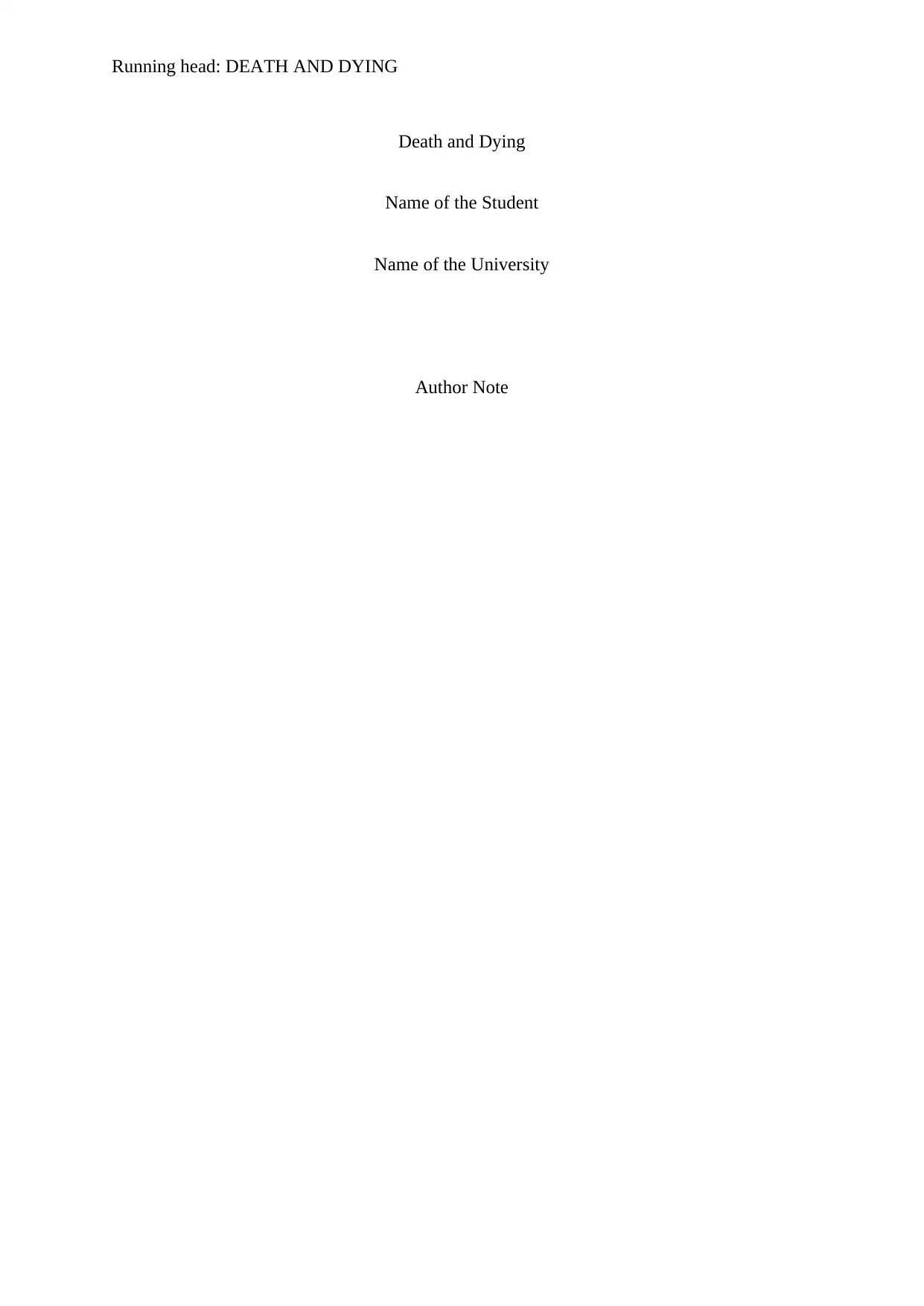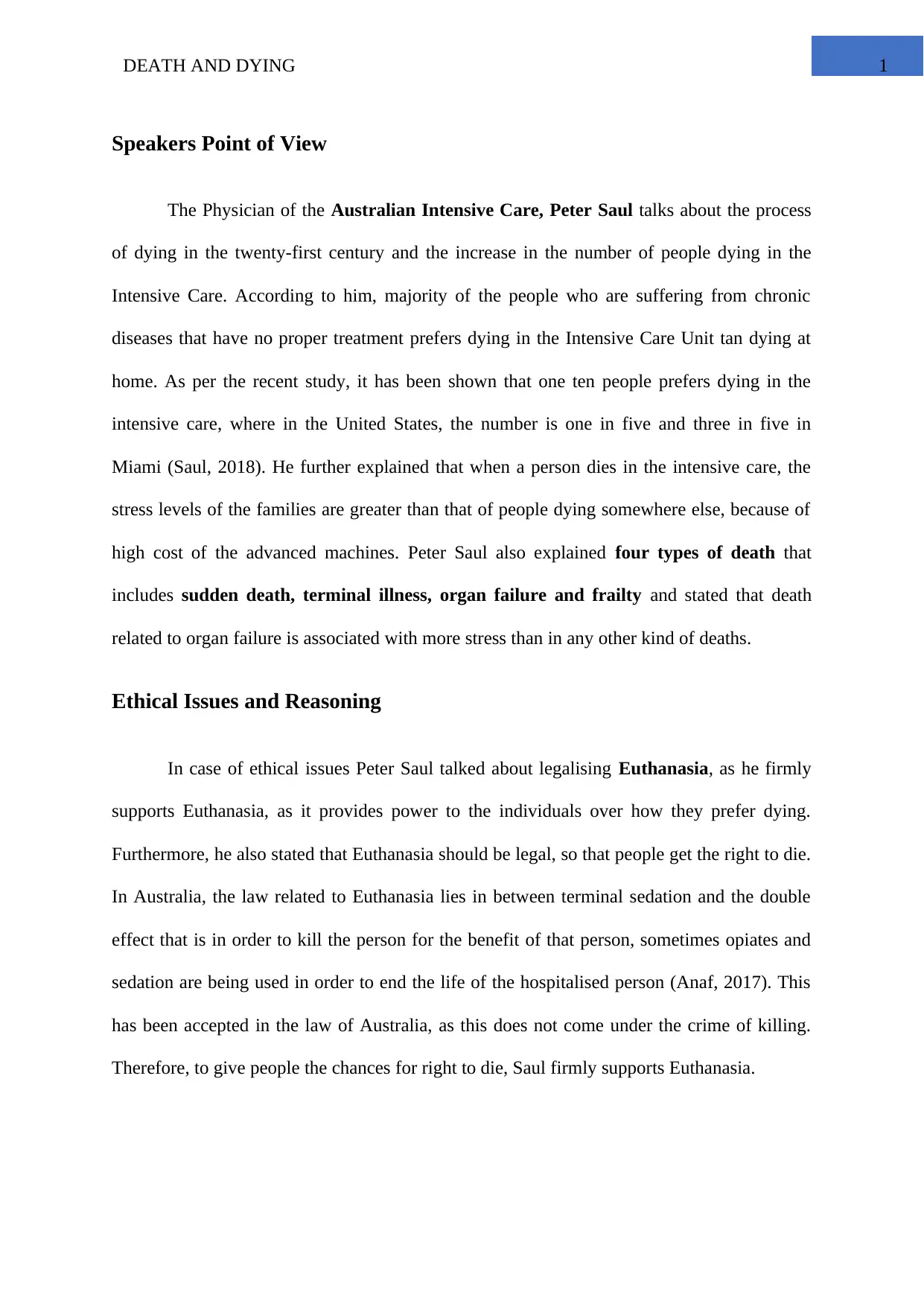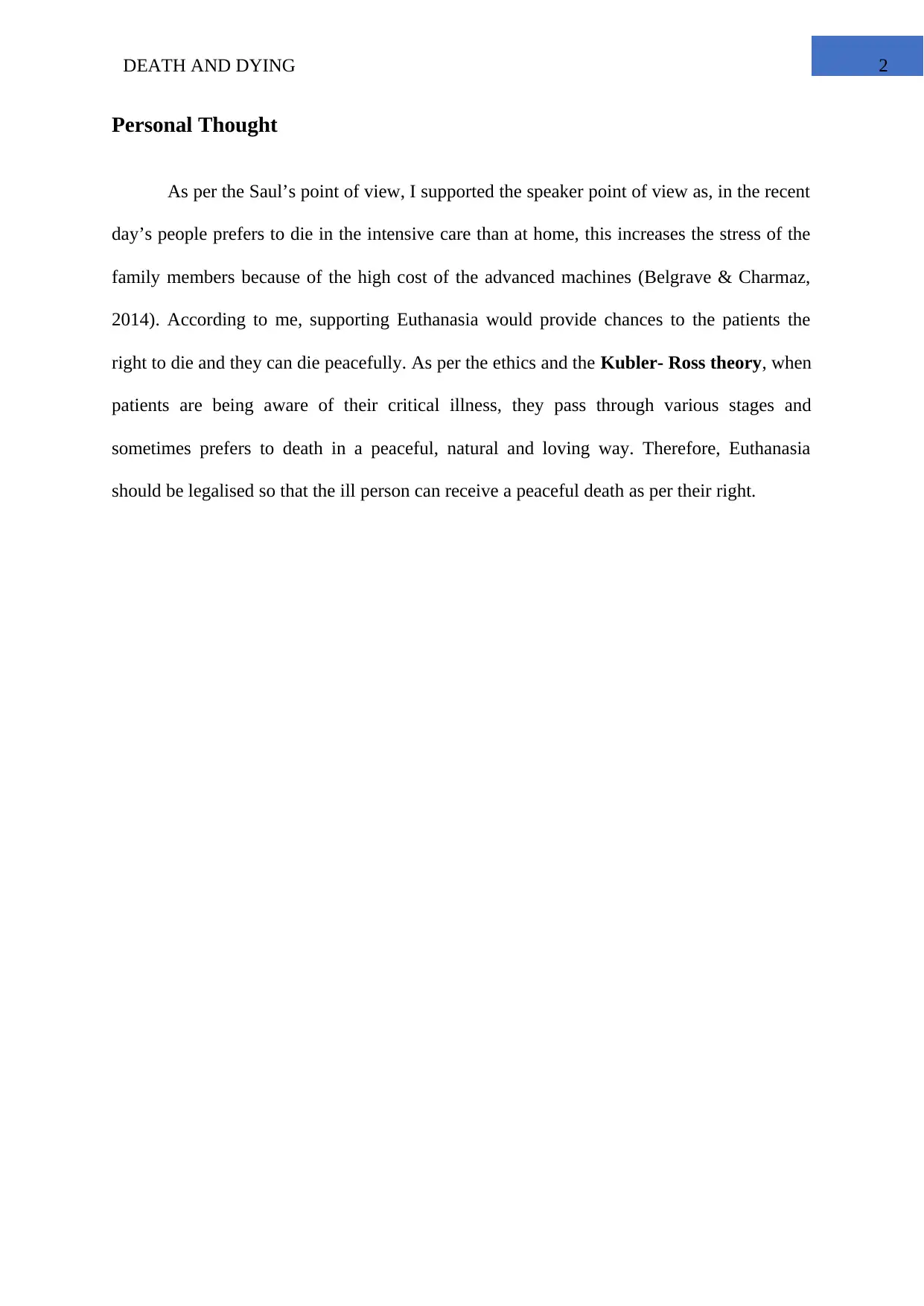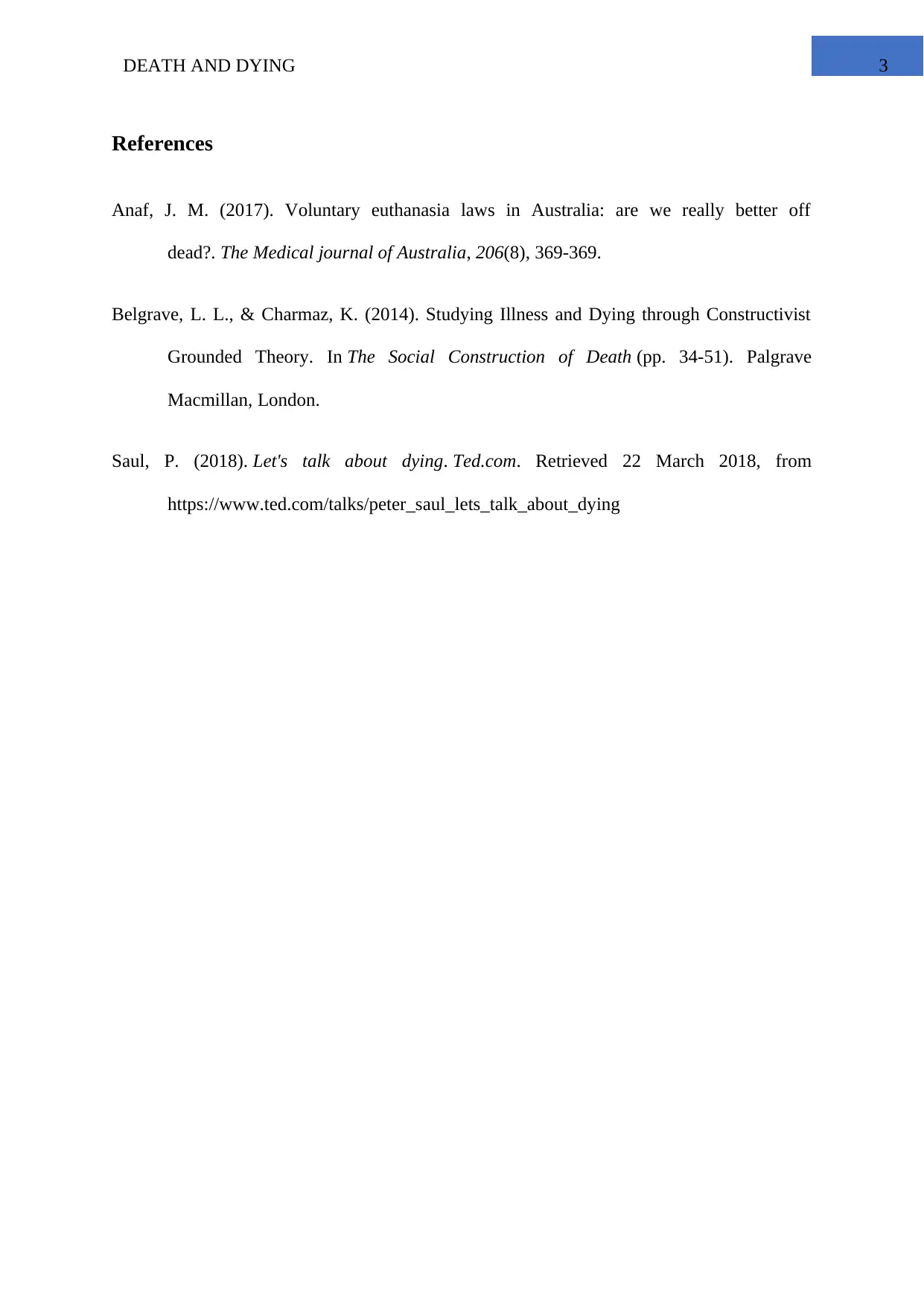Death and Dying: Intensive Care, Euthanasia, and Ethical Dilemmas
VerifiedAdded on 2021/04/19
|4
|615
|72
Report
AI Summary
This report analyzes the ethical and practical considerations surrounding death and dying, drawing insights from Peter Saul's perspective on intensive care and euthanasia. It explores the increasing trend of individuals preferring to die in intensive care units due to advanced medical technologies, and the associated financial and emotional stress on families. The report examines the legal and ethical implications of euthanasia, advocating for patient rights and a peaceful end-of-life experience. It references studies on death-related stress and the Kubler-Ross theory to support the argument for legalizing euthanasia, allowing individuals to make informed decisions about their end-of-life care. The report highlights the importance of ethical considerations in end-of-life care, emphasizing the need for compassionate and patient-centered approaches.
1 out of 4





![[object Object]](/_next/static/media/star-bottom.7253800d.svg)